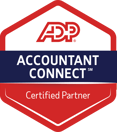Bookkeeping for Small Business Owners
Jay Mims
7/10/20242 min read
For a small business looking to handle bookkeeping, here are some best practices and steps to consider:
Choose the Right Accounting Software: Select user-friendly accounting software suitable for small businesses, such as QuickBooks, Xero, or FreshBooks. Many platforms offer new-customer promos so look out for those to reduce software costs. These platforms offer features like invoicing, expense tracking, financial reporting, and integration with bank accounts.
Set Up Chart of Accounts: Establish a clear chart of accounts tailored to your business needs. This structure categorizes transactions into income, expenses, assets, liabilities, equity, and specific categories relevant to your operations.
Record Transactions Regularly: Consistently enter transactions as they occur such as daily or weekly and at the least monthly. This includes entering sales invoices, vendor bills, payments received, expenses incurred, and any other financial activities. Regular recording ensures accuracy and avoids missing transactions.
Reconcile Accounts Monthly: Reconcile bank accounts, credit cards, and other financial accounts monthly. Compare recorded transactions in your accounting software with bank statements to identify discrepancies and ensure accuracy.
Track Expenses Properly: Categorize expenses correctly and keep receipts organized. This helps with tax deductions, expense management, and financial analysis. With the IRS the 'burden of proof' is with the business so in the event of any audit receipts (or other documentation) are necessary to substantiate expenses.
Invoice and Accounts Receivable Management: Issue invoices promptly to clients and track accounts receivable. Follow up on overdue payments to maintain healthy cash flow.
Manage Accounts Payable: Record and track vendor invoices and payments. Set up a schedule for paying bills on time to maintain good relationships with suppliers.
Perform Regular Financial Reporting: Generate and review financial statements regularly, such as profit and loss statements, balance sheets, and cash flow statements. These reports provide insights into business performance and financial health.
Monitor Cash Flow: Keep an eye on cash flow by tracking incoming and outgoing funds. Forecast cash needs to manage expenses and plan for growth. The U.S. Chamber of Commerce analyzed why small businesses fail and almost 40% of failed small business said it was due to lack of capital.
Stay Compliant with Tax Obligations: Understand tax requirements and deadlines applicable to your business, such as paying quarterly sales tax and estimated income taxes. Keep accurate records for tax filings and deductions, potentially seeking assistance from a tax professional if needed.
Consider Professional Help: While small businesses can handle basic bookkeeping tasks internally, consider consulting with a bookkeeper or accountant for complex transactions, financial analysis, and strategic advice.
Regular Review and Audit: Review financial records periodically for accuracy and completeness. It's recommended to conduct internal audits or have an external auditor review financial statements annually for assurance and compliance, especially when obtaining a bank or looking for capital partners.
By implementing these practices, small businesses can maintain organized and accurate financial records, make informed decisions, and ensure compliance with financial reporting standards and tax regulations. This foundation supports business growth and financial stability over time.

Credentials
CPA # 44657
QuickBooks Pro Advisor
Schedule a meeting
386-846-9140
jay@integralcpa.com
128 Orange Ave
Daytona Beach, FL 32114
© 2025. All rights reserved.






